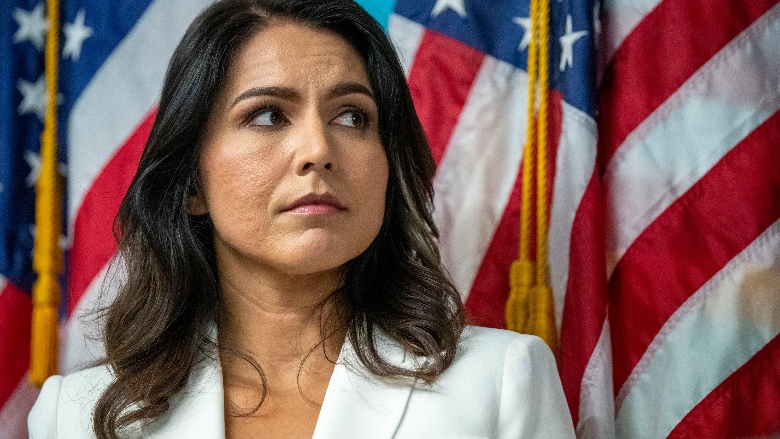Former Rep. Tulsi Gabbard (D-HI), tapped by President-elect Donald Trump to serve as the next director of national intelligence (DNI), is encountering pushback in her Senate confirmation process. At the heart of the controversy is Gabbard’s stark reversal on Section 702 of the Foreign Intelligence Surveillance Act (FISA), a critical intelligence-gathering tool.
Once a vocal opponent of Section 702, which allows the monitoring of foreign communications—including those involving U.S. citizens—Gabbard now champions the program, citing recent reforms as the reason for her change in stance. Her pivot has raised red flags among senators, some of whom question whether her newfound support is genuine or politically expedient.
Give Me News Podcast
Gabbard has gone to great lengths to explain her shift on FISA Section 702, which she now describes as “essential” for national security. “If confirmed as DNI, I will uphold Americans’ Fourth Amendment rights while maintaining vital national security tools like Section 702 to ensure the safety and freedom of the American people,” she said in a statement last week.
She attributed her earlier opposition to concerns about abuses, particularly by the FBI, in conducting warrantless surveillance on American citizens. “Significant FISA reforms have been enacted since my time in Congress to address these issues,” she asserted, adding that those changes had alleviated her prior reservations.
Still, this explanation hasn’t convinced everyone in the Senate. Some lawmakers remain skeptical of her abrupt change, especially given her past legislative efforts to repeal the very program she now defends.
During her time in Congress, Gabbard was one of Section 702’s fiercest critics. In 2020, she partnered with Rep. Thomas Massie (R-KY) to introduce the Protect Our Civil Liberties Act. This legislation sought to repeal both Section 702 and the Patriot Act, which Gabbard argued were being abused to violate Americans’ privacy rights.
In a statement accompanying the bill, Gabbard condemned the intelligence community for lacking transparency and overstepping constitutional boundaries. She called for a complete reevaluation of how national security tools balance the protection of civil liberties and the prevention of threats.
Her current embrace of Section 702 has left some lawmakers questioning whether her principles have changed or if she is simply trying to align herself with the intelligence community’s priorities in her new role.
The Senate Intelligence Committee is sharply divided over Gabbard’s nomination. Among her skeptics is Sen. James Lankford (R-OK), who pointed out the irony of Gabbard now advocating for a program she consistently opposed in Congress.
“If she comes out and says, ‘No, I want to oppose all 702 authority,’ that literally shuts down all of our national defense gathering,” Lankford said. “I don’t think that’s what she’s going to say, but she will need to explain her position thoroughly during her confirmation hearing.”
On the other hand, Gabbard has managed to gain the support of some influential lawmakers. Sen. Tom Cotton (R-AR), chairman of the Senate Intelligence Committee, revealed that Gabbard personally assured him of her commitment to FISA Section 702 and its recent reforms. “She supports Section 702 and will follow the law,” Cotton said.
Gabbard’s confirmation process highlights the ongoing debate over balancing privacy and security in the post-9/11 era. While Section 702 is hailed as a critical tool for identifying and disrupting foreign threats, its broad reach and potential for misuse have drawn criticism from both sides of the political spectrum.
Gabbard’s challenge will be to convince lawmakers that she can uphold constitutional rights while overseeing an intelligence program she once sought to dismantle. Critics are likely to press her on the specifics of her evolution on FISA, particularly how she intends to ensure the program remains within legal boundaries.
Gabbard’s nomination represents a test of how far lawmakers are willing to accept shifts in policy positions from key intelligence officials. For her part, Gabbard has emphasized that her current stance reflects her recognition of both the importance of Section 702 and the safeguards now in place to protect civil liberties.
Her ability to navigate the Senate hearings and address the concerns of her critics will determine whether she secures confirmation as DNI. While some lawmakers appear satisfied with her explanations, others remain unconvinced, ensuring that her path to confirmation will be anything but smooth.
The hearings promise to be a high-stakes battle, with Gabbard walking a tightrope between her controversial past and her current role as a defender of one of the nation’s most powerful surveillance tools.

